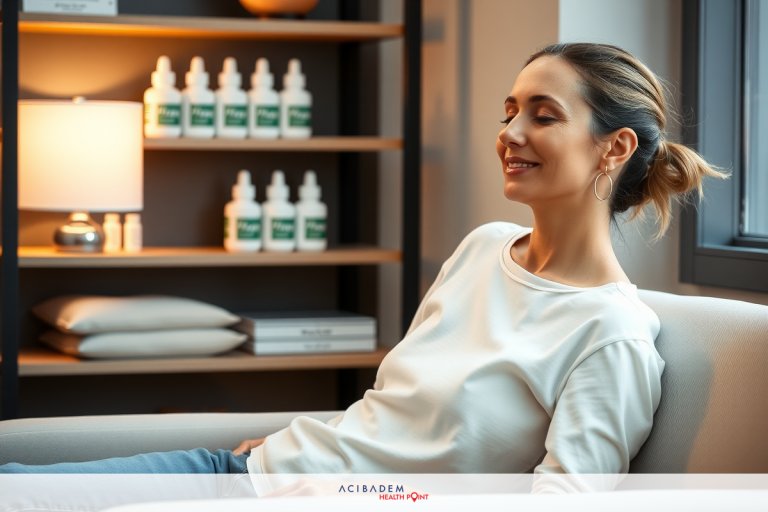Why Preservative Free Eye Drops After LASIK
Why Preservative Free Eye Drops After LASIK LASIK surgery, often leaves patients with dry eyes. A common recommendation in response to this discomfort is the use of preservative-free eye drops after the operation. With their unique formulation devoid of chemical additives that could potentially irritate sensitive post-operative eyes, these drops bring muchneeded relief while promoting healing.
Yet it’s not just about comfort, these eye drops play a crucial role in recovery as well. The sterile nature of preservative-free solutions reduces the risk of infection; their lubricating properties help maintain ocular surface health and integrity. By incorporating them into your post-LASIK care routine, you give your eyes a more conducive environment for healing.
Benefits of Preservative-Free Eye Drops
Why Preservative Free Eye Drops After LASIK Preservative-free eye drops are a boon to those who have undergone LASIK surgery. The absence of preservatives means that these drops are less likely to cause an adverse reaction in the sensitive postoperative eyes, making them ideal for use during the recovery period. They help maintain the health and integrity of the ocular surface which is crucial during this time.
The benefits extend beyond just comfort and safety though; there’s more beneath the surface. For instance, these eye drops play a role in mitigating dryness, a common ailment after LASIK surgery, that can be detrimental if left unchecked. Dry eyes can hinder vision clarity and even slow down healing; using preservative-free eye drops helps keep this issue at bay while ensuring optimal visual outcomes.
Yet another benefit lies in their lubricating properties. Post-LASIK eyes are delicate and require careful nurturing back to full functionality; regular application of these lubricating substances supports this process by providing much-needed moisture that aids healing while preventing potential complications like corneal abrasion due to excessive dryness. By being part of your post-operative care routine, you’re giving your eyes an environment conducive for recovery.
Proper Usage of Preservative-Free Eye Drops
Why Preservative Free Eye Drops After LASIK The use of preservative-free eye drops can improve the post-operative experience for LASIK surgery patients. They are instrumental in alleviating discomfort, promoting recovery, and ensuring optimal visual outcomes. Their effectiveness is closely tied to proper usage.
Here’s a list that outlines correct application:
- Always wash your hands before using the drops to prevent contamination. 2. Avoid touching the tip of the dropper bottle with your hands or eyes as it could breed bacteria. 3. Tilt your head back slightly and gently pull down your lower eyelid to create a small pocket. 4. While looking up, squeeze out one drop into this pocket without allowing the dropper tip to touch any part of your eye. 5. Close your eyes for 2-3 minutes without blinking or squinting if possible; this allows time for absorption. 6. If you need to apply more than one type of eye drop at a time, wait at least five minutes between each type.
Why Preservative Free Eye Drops After LASIK Consistency is key when it comes to reaping benefits from these drops following LASIK surgery! Follow these steps diligently every day during your recovery period until advised otherwise by healthcare professionals. This will ensure that you’re giving yourself the best chance at smooth healing and clear vision moving forward!
Tips for Choosing Preservative-Free Eye Drops
Selecting the right preservative-free eye drops after LASIK surgery is not a one-size-fits-all decision. Several

considerations come into play, including individual sensitivity and the specific needs of your eyes during recovery. Making an informed choice can greatly enhance your comfort levels and contribute to optimal healing.
Here are some tips to guide you in choosing the most suitable preservative-free eye drops:
- Look out for products specifically labeled as ‘preservative-free’. These formulations are less likely to cause irritation or allergic reactions. 2. Consult with your ophthalmologist or optometrist before making a purchase; they can provide personalized recommendations based on their understanding of your condition post-LASIK. 3. Consider options that come in single-use containers which minimize risk of contamination. 4. Evaluate reviews from other users who have undergone LASIK surgery; their experiences might offer valuable insight into product effectiveness and tolerability.
Why Preservative Free Eye Drops After LASIK What works well for others may not necessarily work well for you due to potential differences in individual responses and sensitivities. It’s always best to consult healthcare professionals when selecting these essential components of your post-operative care routine!
Frequently Asked Questions
Why are preservative-free eye drops recommended after LASIK surgery?
Preservative-free eye drops provide relief from dryness and discomfort often experienced post-LASIK. They have a gentle formulation that's less likely to irritate sensitive eyes, making them ideal for use during recovery.
How do I correctly use preservative-free eye drops?
Proper usage involves washing hands before application, avoiding contact with the dropper tip, applying the drop into the lower eyelid pocket without blinking or squinting immediately afterwards and waiting for a few minutes before applying any other types of eye drops if required.
What should I consider when choosing preservative-free eye drops?
When selecting these products, look out for labels stating 'preservative-free', consult your ophthalmologist or optometrist for personalized recommendations based on your condition, consider single-use options to minimize contamination risk and evaluate product reviews from fellow LASIK patients.
Can I use regular lubricating eye drops instead of those labeled as 'preservative free'?
While non-preservative free formulations might offer temporary relief from dryness, they may not be as suitable due to potential irritation caused by chemical additives—especially in the sensitive post-operative period. Always consult healthcare professionals when making such decisions.








